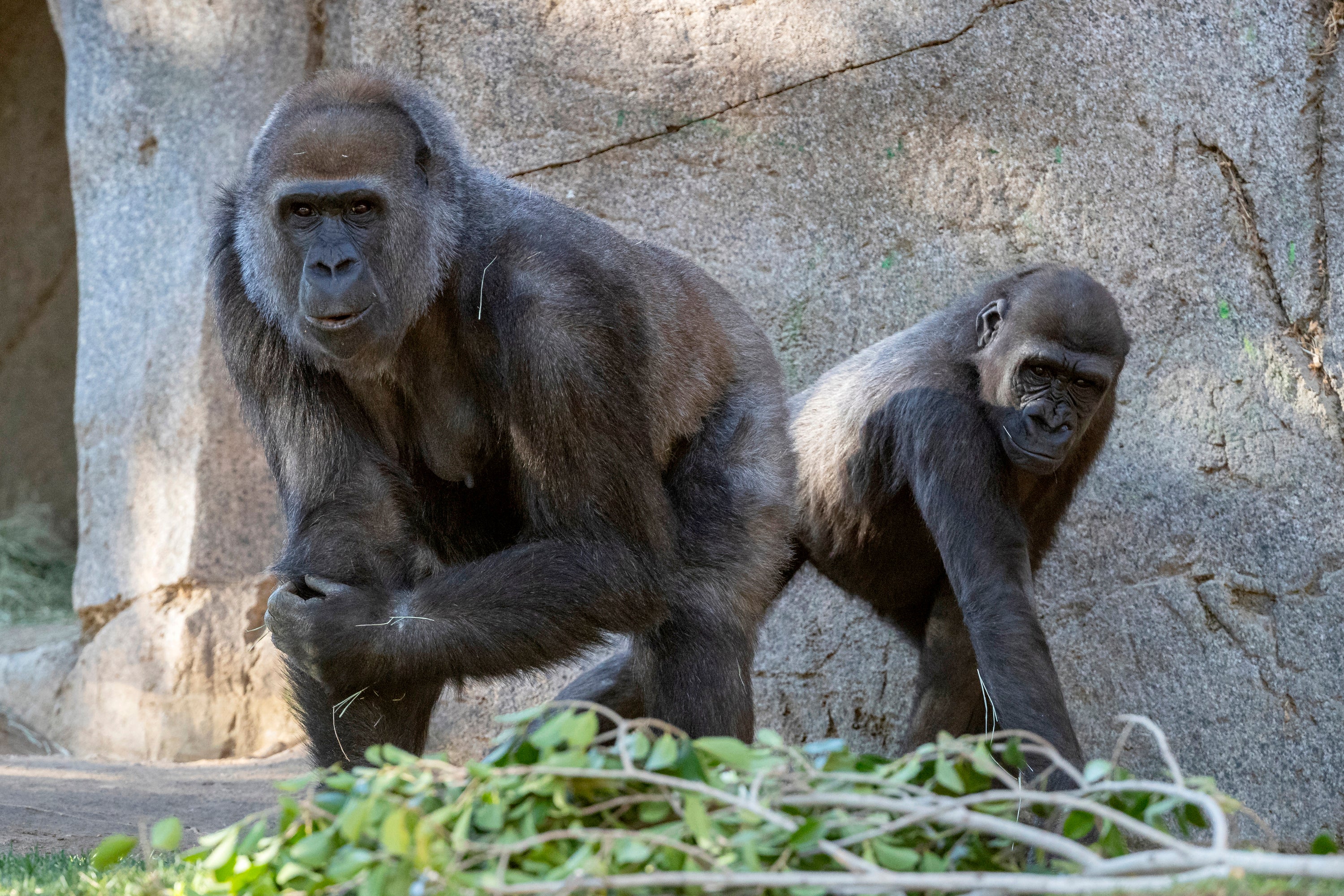Ape at San Diego park improving after virus antibody therapy
Several gorillas at San Diego Zoo Safari Park appear to be recovering weeks after testing positive for the coronavirus, including a silverback who received antibody treatment

Your support helps us to tell the story
From reproductive rights to climate change to Big Tech, The Independent is on the ground when the story is developing. Whether it's investigating the financials of Elon Musk's pro-Trump PAC or producing our latest documentary, 'The A Word', which shines a light on the American women fighting for reproductive rights, we know how important it is to parse out the facts from the messaging.
At such a critical moment in US history, we need reporters on the ground. Your donation allows us to keep sending journalists to speak to both sides of the story.
The Independent is trusted by Americans across the entire political spectrum. And unlike many other quality news outlets, we choose not to lock Americans out of our reporting and analysis with paywalls. We believe quality journalism should be available to everyone, paid for by those who can afford it.
Your support makes all the difference.A troop of gorillas at San Diego Zoo Safari Park appears to be recovering from the coronavirus — including a 49-year-old silverback who received antibody therapy — in what is believed to be the first known cases among such primates
The western lowland gorillas were infected with a variant that has been circulating in California and is believed to be more contagious than other strains, the safari park said Monday in a statement. Some gorillas showed symptoms including mild coughing, congestion and intermittent lethargy.
The silverback named Winston, had pneumonia, likely caused by the virus, as well as heart disease. He has been more active since being put on antibiotics and heart medication, and receiving an antibody treatment — a therapy to block the virus from infecting cells, San Diego Zoo Safari Park said in a statement.
“We’re not seeing any of that lethargy. No coughing, no runny noses anymore,” the park's executive director Lisa Peterson told the San Diego Union-Tribune, adding that the animals' fecal matter is no longer testing positive for the virus. “It feels to us like we’ve turned the corner.”
Officials tested the troop of gorillas after two apes began coughing on Jan. 6. Positive test results were confirmed by the U.S Department of Agriculture National Veterinary Services Laboratories in three gorillas.
The apes were likely exposed by a zookeeper who tested positive for COVID-19 in early January, officials said. The park north of San Diego has been closed to the public as part of California’s lockdown efforts to curb coronavirus cases, and the park’s wildlife care team wore masks at all times around the gorillas.
Veterinarians are preparing to inject gorillas at the San Diego Zoo with a COVID-19 vaccine, a supply made specifically for animals. They also plan to vaccinate other species believed susceptible to infection, such as felines. Wildlife in other locations — from minks to tigers — have gotten the virus.
The gorillas at the safari park will not be vaccinated for now since they have been exposed.
San Diego Zoo Global, which oversees the zoo and the safari park, plans to share what it has learned with other scientists with the hope that it will contribute to the understanding of how the virus can affect apes.
Wildlife experts have expressed concern about the coronavirus infecting gorillas, an endangered species that share 98.4 percent of their DNA with humans and are inherently social animals.